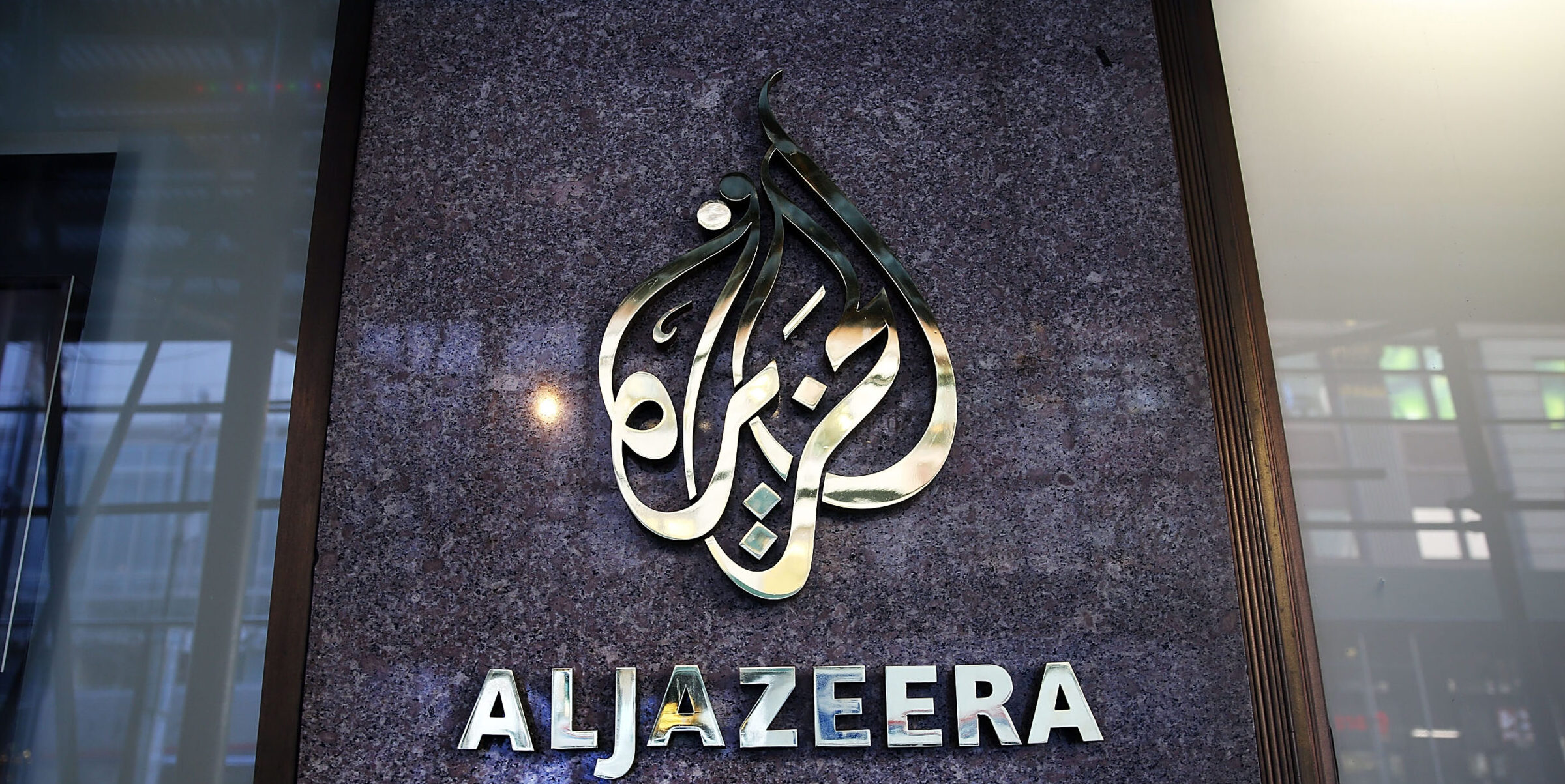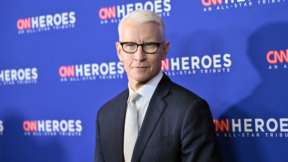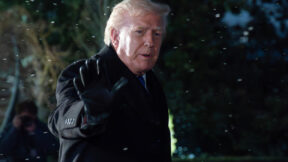One Year In, Qatar’s Effort to Infiltrate The American Right Still Poses a Threat

Spencer Platt/Getty Images
Last year, Qatar-funded Al Jazeera launched Rightly, a right-wing media outlet. The outlet has courted controversy internally, where Al Jazeera’s liberal staff sees a threat to its journalism, and externally, where Qatar stands accused of using Rightly to establish a stronger foothold in American politics and aversely influence the conservative movement in the United States.
In other words, propaganda.
Qatar is a Middle East powerhouse with impressive soft-power influence in media outlets, think tanks, governments, nongovernmental organizations, and other institutions worldwide. What makes the Qatar’s foray into conservative media so alarming is that the country is a close ally of Iran, which is one of today’s greatest nuclear and geopolitical threats, whose leaders preach “Death to America” and “Death to Israel,” and is the world’s leading state sponsor of terrorism. And Qatar, like Iran, supports, financially and otherwise, U.S.-designated terrorist groups such as Hamas.
Additionally, Qatar has reportedly employed forced labor and other abusive working conditions into building stadiums and other facilities ahead of the 2022 FIFA World Cup.
Rightly is a digital platform that is part of the Al Jazeera Media Network (AJMN), which is controlled by Qatar and has propagated anti-American, anti-Israel, and anti-Western viewpoints. Last year, the Department of Justice required that one of AJMN’s subsidiaries, AJ+, register as a foreign agent.
“Qatar understands the need to have links to both the Left and the Right in the US, and even to local publications due to the fact that in the U.S. political trends shift over time and countries need to have influence with both voters and officials no matter who is in power,” international affairs expert Irina Tsukerman told Mediaite. Tsukerman is editor-in-chief of The Washington Outsider, which primarily focuses on the issues in the Middle East and North Africa.
“Having conservative media in some of the swing or populated states allows it to enjoy positive publicity on all fronts, and also promotes the agents of influence Qatar has cultivated within the political system so they too are seen in a more positive way,” she added.
So far, Rightly has hosted political figures including Sen. Rand Paul (R-KY), Rep. Peter Meijer (R-MI), and libertarian political commentator Brad Polumbo, who as a gay man would be persecuted in Qatar for his sexual identification.
Rightly’s YouTube channel currently has at least 22,000 subscribers, though its videos usually draw a paltry number of views. Even with such numbers, the effort by Qatar to infiltrate right-wing media on multiple platforms should be met with alarm.
Tsukerman said that “overall, Qatar has made significant inroads with its conservative audiences.” She argued that some right-wing outlets are “echoing some of its propaganda” by defending Qatar from its critics, and declining to publish articles critical of the country. The American Conservative, for example, has published pro-Qatar pieces including: “Why Tiny Qatar May Be Our Greatest Hope In The Iran Crisis,” “The Assault On Qatar Was Another Big Saudi Failure,” “The Failed Qatar Blockade And The Reckless Saudis,” and “The Iran Obsession And Qatar.”
Whether intentional or not, conservative media has mostly ignored Qatar in its coverage of foreign policy.
In July, the State Department announced it was investigating Qatar over its alleged financial support for Iran’s Islamic Revolutionary Guard Corps, which the United States considers to be a terrorist entity.
Outside of The Washington Examiner, quick searches on other conservative publications show no coverage of the lawsuits. The omission is surprising since the Right is typically hawkish toward Iran and its allies and proxies (Disclosure: The author of this column is a paid contributor for The Washington Examiner.)
Another example of apparent Qatari influence in conservative media that Tsukerman cited was in 2018 when Qatar allegedly hacked critics, including Trump fundraiser and confidant Elliott Broidy.
Indeed, a quick Google search of the 2018 Qatari hacking of Trump fundraiser and confidant Elliott Broidy shows that reporting about it was done from mostly mainstream media outlets such as The New York Times and, outside of The Washington Free Beacon, not reported in right-wing media.
“Since 2018, there was no follow-up of Qatar’s hacking, intimidation of its critics in the U.S. and around the world aside from the Broidy story that was covered because of the FBI investigation into him and his lawsuits of Qatar, coverage of which was intermittent,” said Tsukerman.
To be sure, outside of The Daily Caller, there has been a lack of investigative or other reporting in right-wing media on Qatar, including its financial support of Middle East studies departments on U.S. college and university campuses. While this lack of coverage cannot be definitively attributed to a pro-Qatar bias, it raises questions about how conservative outlets view Qatar. This vacuum, perpetuates a lack of awareness of Qatar’s malign activities, creates an opportunity for Doha to further its agenda.
Were Rightly to become viral or influential, it could worsen the deleterious effects of the conservative echo chamber.
Time and time again we know what echo chambers can do to their audiences. Examples include Fox News propagating the Big Lie that Donald Trump won the 2020 presidential election and CNN and left-wing media embracing conspiracy theories about Trump’s 2016 campaign colluding with Russia in 2016.
Now imagine conservatives beginning to adopt the view that the United States should go soft on Tehran and tough on Israel, America’s closest ally in the Middle East.
While Rightly is Qatar’s first foray to influence the conservative media ecosystem with its own outlet, Doha made numerous previous attempts to skew it in its favor. In 2018, Qatar reportedly tried to purchase a stake in Newsmax — albeit unsuccessfully. It has allegedly purchased column space in right-wing publications such as The Washington Times.
“Other times, Qatar works with partners such as Al-Monitor, owned by a Syrian American billionaire, to gain control of conservative or other outlets that can indirectly serve its purpose by reaching a broader audience,” wrote Tsukerman in a Medium post. “The purchase of RealClearPolitics from Forbes by Al Monitor’s parent company Crest Media is one such example.”
“Although it will take time to see Rightly’s success as a platform, the fact that it is a contributing factor and that Qatar continues finding ways to insert its propaganda into the conservative media in various ways is overall troubling and is not likely to diminish in the near future without consistent coverage and dedicated pushback,” said Tsukerman.
Such pushback, like the United States requiring Rightly and AJMN to register with the DOJ as foreign agents, should happen.
This is an opinion piece. The views expressed in this article are those of just the author.
New: The Mediaite One-Sheet "Newsletter of Newsletters"
Your daily summary and analysis of what the many, many media newsletters are saying and reporting. Subscribe now!






Comments
↓ Scroll down for comments ↓